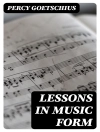In his seminal work, ‘Principles of Orchestration, ‘ Nikolay Rimsky-Korsakov meticulously articulates the foundational elements of orchestral writing, offering invaluable insights into instrumentation, timbre, and orchestral texture. This book, characterized by its pedagogical clarity and practical examples, delves into a plethora of orchestral instruments, elucidating their potential and limitations within an ensemble context. As a fundamental text in the pantheon of music theory, its stylistic prose is both informative and accessible, reflecting the author’s deep understanding of orchestration developed during his tenure with the Russian nationalist movement. Nikolay Rimsky-Korsakov (1844-1908), renowned as a composer and music educator, drew extensively from his rich heritage of Russian folk music and his experiences at the forefront of orchestral innovation. His tenure as a professor at the St. Petersburg Conservatory equipped him with the pedagogical tools to craft this treatise, aiming to bridge the gap between theoretical knowledge and practical application for aspiring composers. Rimsky-Korsakov’s commitment to fostering a comprehensive understanding of orchestration has rendered this book a cornerstone in musical education and composition. This work is highly recommended for composers, music students, and conducting scholars alike, as it provides a profound exploration of orchestration principles that remain relevant in contemporary music composition. ‘Principles of Orchestration’ not only serves as the quintessential guide for effective orchestral writing but also offers a lens into the artistry of sound creation, making it an essential addition to any serious musician’s library.
Про автора
Nikolay Rimsky-Korsakov (1844–1908) was a Russian composer, teacher, and editor who played a significant role in the development of Russian classical music. As a member of ‘The Five, ‘ a group of composers dedicated to producing a distinctly Russian style of classical music, Rimsky-Korsakov embraced the rich tapestry of Russian folklore, literature, and history in his compositions. His work is characterized by vivid orchestral colors and an innovative use of harmony, which has influenced both his contemporaries and successors. Although he composed numerous symphonies, operas, and chamber works, his enduring contribution to the field of music is embodied in his book ‘Principles of Orchestration.’ This work, published posthumously in 1913, is a seminal theoretical treatise that continues to be an essential text for students and professionals in orchestration. It presents practical methods for orchestrating music, all the while highlighting how to achieve a desired sound effect. Rimsky-Korsakov’s pedagogical approach and his masterful insight into the capabilities of orchestral instruments contribute to the depth and clarity of this influential book. His virtuosic technique and his commitment to educating a new generation of composers cemented his legacy as a pillar of Russian classical music and a scholarly guide in the art of orchestration.












